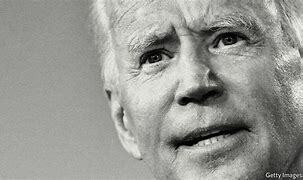By Michael Lodge, The Business Advisor, Greenville, SC: When Joe Biden was elected as the 46th President of the United States, he promised a new era of economic revitalization and prosperity. His economic agenda, commonly referred to as "Bidenomics," aimed to address income inequality, stimulate economic growth, and create jobs. However, as we approach the midway point of his presidency, it is becoming increasingly clear that Bidenomics has failed to deliver on its promises. This article will assess the shortcomings of Biden's economic policies and explore the reasons behind their failure.
1. Inflation and Rising Prices:
One of the major concerns stemming from Biden's economic policies is the surge in inflation and rising prices across various sectors. The massive stimulus packages, combined with increased government spending, have fueled inflationary pressures. As a result, consumers are experiencing higher costs for essential goods and services, eroding their purchasing power. This has particularly impacted low-income individuals and families, exacerbating income inequality and hindering economic recovery.
2. Tax and Regulatory Burden:
Biden's proposed tax hikes, particularly on corporations and high-income earners, have raised concerns among businesses and investors. By increasing the tax burden on corporations, Biden risks stifling economic growth and discouraging investment. Moreover, the proposed regulations on various industries, such as energy and healthcare, have created additional uncertainty and hindered business expansion and job creation.
3. Labor Market Challenges and American's Personal Finance Challenges:
Despite Biden's promises to create millions of jobs, the labor market has faced significant challenges under his administration. The COVID-19 pandemic undoubtedly played a role in the initial job losses, but the policies implemented to address the economic fallout have hindered job creation. The extended unemployment benefits and enhanced federal support have inadvertently disincentivized individuals from reentering the workforce, leading to labor shortages in several sectors, including hospitality and manufacturing.
RED FLAG - CONSUMER DEBT DEFAULT: This has created a serious debt situation for Americans. Inflation was growing faster then wages, Americans used up their savings and resorted to using their credit cards and placing them in debt. Americans now have an absolute mountain of credit card debt - $986 billion as of the first quarter of 2023. Americans are faced with default on their debt leaving the credit card banking industry challenged. Auto loan delinquencies and defaults are also on the rise in 2023. According to a report from Cox automotive, auto loan delinquency rates have climbed to their highest levels in over 15 years. Auto loans are considered to be "severely delinquent" when past due by 60 days or more. These are red flags that were set by government spending policy that have put Americans in a loan delinquent status, moving people from good credit scores to a hard money, high interest status for future loans.
RED FLAG - BANKING AND COMMERCIAL REAL ESTATE DEFAULTS: The US banking and commercial real estate market are on a verge of loan losses and a disaster. Commercial real estate is now starting to turn their keys into their lenders because the asset is upside down and the commercial real estate industry are unable to meet their real estate loan debts, and the defaults have started to gain momentum placing the banking industry in a dangerous position.
4. Lack of Fiscal Restraint:
Bidenomics has been characterized by a lack of fiscal restraint, as evidenced by the massive stimulus packages and proposed infrastructure spending. While some argue that these measures are necessary to stimulate economic growth, the long-term consequences of the escalating national debt cannot be ignored. Excessive government spending without a corresponding increase in revenue places an enormous burden on future generations, potentially leading to higher taxes and reduced economic opportunities. Continued over spending on Ukraine and it's war with Russia is draining finances and the assets from our own US military. Just recently Biden stated we are out of bullets? Really, what commander in chief allows that to happen? His fiscal nonsense has sent billions of dollars to a corrupt nation of Ukraine with no audit trail to see how that money was spent. This is fiscal irresponsibility and dangerous.
5. International Trade and Competitiveness:
Biden's approach to international trade has been inconsistent and has failed to address the challenges posed by global competitors. While he has taken steps to reverse some of the protectionist policies of the previous administration, his administration's stance on issues like intellectual property rights, trade agreements, and China's economic practices remains unclear. This lack of clarity and proactive approach hinders American businesses' competitiveness in global markets.
Conclusion: Joe Biden's economic policies, known as Bidenomics, have fallen short of their promises. The surge in inflation, rising prices, tax and regulatory burdens, labor market challenges, lack of fiscal restraint, and ambiguous approach to international trade have all contributed to the failure of his economic agenda. The long-term consequences of these policies may further hinder economic growth, exacerbate income inequality, and burden future generations. As the Biden administration continues to navigate economic challenges, a reassessment of its policies is crucial to ensure sustainable and inclusive economic recovery for all Americans. Will that happen from Biden? Probably not.

